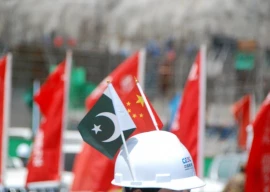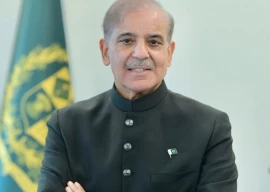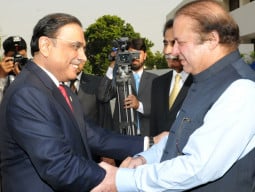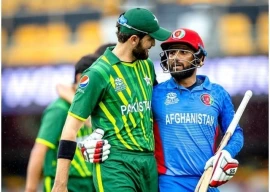
A concerted effort is underway to marginalise Muslims in India. The practice of marginalising a community often begins by belittling its social existence and later projecting it as a danger to humanity — either based on their religious practices, as is happening with Muslims, or on the basis of racism, as occurred with Blacks.
Since the BJP, an ultra-right-wing Hindu nationalist political party, took over in India, life for ordinary Muslims has become a chore. Over the past ten years, a generation steeped in a victim mentality has emerged, projecting Muslims as violators of human rights during their 800-year reign. In a bizarre attempt, Hindus are made to believe that everyone who had ever walked on this part of the earth — India, Bangladesh and Pakistan — was Hindu and was forced to convert to Islam by Muslim invaders or Christian missionaries.
In response to this faulty perception, a campaign called Ghar Wapsi, meaning homecoming, was launched to convert the converts. Ghar, which means home, can denote many things, from family, lineage, security and safety to trust and faith, but was reduced to a single connotation of the Hindu umbrella conveniently called Sanatana Dharma. Whereas wapsi, meaning return, was infused with a broad concept that includes lost, strayed, misled, stolen, or captured. In short, the mission has been to bring back under the Sanatan Dharma the lost, strayed, misled, captured, and stolen Muslims and Christians.
For an ordinary Hindu, the political history of the subcontinent is a painful narrative of stolen identity. Combine this with the partitioning of Bharat Mata (Mother India) to form Pakistan, and one gets a lethal concoction of hate speech, violence, and misinformation targeting Muslims.
India has cleverly taken a leaf from the so-called Islamic terrorism playbook to paint Kashmiri freedom fighters as terrorists and later philosophised jihad into a concept that supports the elimination of Hindus. As this mentality was cultured, a new lexicon emerged to make incitement against Muslims less creative and more straightforward.
Hundreds of Muslim boys have been falsely accused of ‘Love Jihad’, a term used to refer to the practice of Muslim men alluring Hindu girls with the intention of marrying them, converting them to Islam, and meting out inhuman treatment.
Every single case of Love Jihad has been thrown out of Indian courts as a conspiracy against Muslims. Since the idea has not been to implicate Muslims in cases, not bad if that happens, but to tarnish their image as haters of idol worshippers and religious bigots appreciative of violence, the practice goes on.
Last year, in Assam, Muslims who were hired to construct embankments to protect communities from flooding were accused of ‘Flood Jihad’. The untimely monsoon was unusually harsh and wiped out the flood defences in the Hindu-majority city of Silchar. Muslims were blamed for deliberately constructing weak embankments. A man named Nazir Hussain Laskar was arrested and kept in jail for 20 days. Four more men were arrested alongside Laskar amid an onslaught of social media posts accusing them of orchestrating Flood Jihad. No evidence linked any of them to the breach.
The Jihad mantra also surfaced at the outbreak of Covid-19 in India, when the phrase ‘Corona Jihad’ was coined. Muslims were falsely accused of deliberately spreading Covid-19. In ‘Land Jihad’, Muslims are blamed for hoarding land to gain control of India’s terrain.
And then there were ‘Vote Jihad’ and ‘Narcotic Jihad’ as well.
The growing intolerance against Muslims resulted in a significant backlash against the BJP in recent elections, with not a single Muslim voting for the ruling party. Whereas in 2019, about 8% Muslims voted for the party.
Along with hate-speech and making Ghar Wapsi an ideological pursuit toward the Hindutva project, another variant to criminalise Muslims was the practice of cow vigilantism. Activists called Gau Rakshaks, or cow protectors, have taken Indian laws banning cattle slaughter and beef consumption into their own hands.
Hate-tracking organisations and human rights groups have claimed that hundreds of Muslims have been lynched over the past few years on suspicion of killing cows.
Muslims are not forbidden to eat beef, and animal slaughter is part of some key Islamic festivals.
A few months ago, 11 Muslim households were demolished in Madhya Pradesh after authorities found beef, which is banned in the state.
A 35-year-old man named Fareed was brutally murdered by Gau Rakshaks in Aligarh because he and his family sacrificed a cow on Eid-ul-Adha this year. Al-Jazeera reported the incident as follows: “More than a dozen men, armed with wooden sticks and iron rods, dragged the 35-year-old Fareed through the street and beat him to death as bystanders caught the horror on their phone cameras.” Another three men were killed on a highway on suspicion of carrying beef. A doctor was vandalised for treating the lynched Muslim.
Recently, in a move condemned and struck down by the Supreme Court of India, the BJP governments of Uttar Pradesh and Uttarakhand gave oral orders for restaurants and roadside carts along a route taken each year by thousands of Hindu pilgrims to display the name of the owners on the outlets. This discriminatory order was wrapped in the logic of preventing Hindus from eating meat items. Rationally speaking, as the courts also argued, this could have been done by simply putting up vegetarian or non-vegetarian boards. Why specify the owner’s name?
Another reasoning given in favour of displaying the owner’s name involves an allegation that Muslims spit on the food they serve to Hindus. Another misleading information.
In response to the court order, India’s social media platforms are buzzing with the anti-halal campaign. Hindus are being asked to refrain from using anything labeled as halal on packaged food.
The BJP’s Hindutva project is fundamentally a discriminatory campaign against Muslims and other minorities. However, the recent election results have shown that the politics of hate has a short shelf life.













COMMENTS
Comments are moderated and generally will be posted if they are on-topic and not abusive.
For more information, please see our Comments FAQ